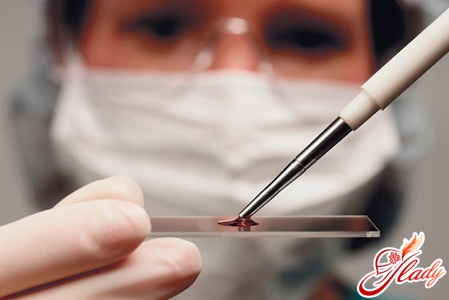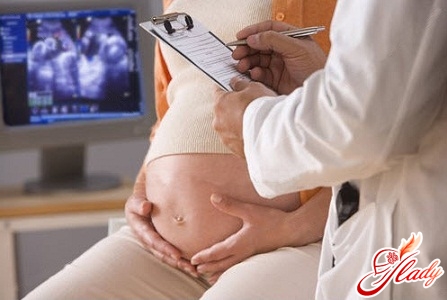 Sooner or later, most people come tothoughts that they want a child. But, unfortunately, sometimes a couple cannot get pregnant, despite all their efforts and tricks. According to disappointing statistics, about 20% of couples face such a problem as infertility. Alas, the reproductive function of modern people is becoming increasingly imperfect and often fails. And that is why such a concept as artificial insemination no longer surprises anyone. But let's look into this delicate issue in order. Do you know in what cases we can talk about infertility? Very often women begin to panic after the second or third month of unsuccessful attempts. However, doctors say that true infertility is diagnosed only after a year of unsuccessful attempts to get pregnant. And in some cases, this period can be even longer.
Sooner or later, most people come tothoughts that they want a child. But, unfortunately, sometimes a couple cannot get pregnant, despite all their efforts and tricks. According to disappointing statistics, about 20% of couples face such a problem as infertility. Alas, the reproductive function of modern people is becoming increasingly imperfect and often fails. And that is why such a concept as artificial insemination no longer surprises anyone. But let's look into this delicate issue in order. Do you know in what cases we can talk about infertility? Very often women begin to panic after the second or third month of unsuccessful attempts. However, doctors say that true infertility is diagnosed only after a year of unsuccessful attempts to get pregnant. And in some cases, this period can be even longer.
Indications for IVF
It is very important to see a doctor and find outcause of infertility. In most cases, infertility can be successfully treated with less radical methods than IVF. However, in about 30% of all cases of infertility, alternative treatments are ineffective if there are problems such as:
- Problems with fallopian tubes
In the event that the adhesion processes are verysevere, partial or complete obstruction of the fallopian tubes may develop. And in some cases - for example, in cases of ectopic pregnancy - the fallopian tubes may be completely absent. From a physiological point of view, a woman can carry a child, but she cannot become pregnant.
- Male infertility
The problem may lie not only in the femalebody, but also in the male body. Doctors quite often diagnose decreased sperm motility and a decrease in their number, and sometimes even their complete absence.
- Endometriosis
- Immunological factor of infertility
And it is in these cases that it is worth remembering such a method as in vitro fertilization. In some cases, it is IVF that becomes the only opportunity for spouses to become parents.
Conditions for ECO
In vitro fertilization is a very serious procedure, therefore, in order to carry it out, a number of mandatory conditions must be met:
- Consent of spouses
In order for doctors to perform in vitro fertilization, the consent of both spouses is required.
- Health status
No less important is the general state of health.spouses. At the time of IVF, neither the man nor the woman should have any acute or chronic diseases of the genital tract, as well as general systemic diseases of the body that are contraindications to IVF.
- Condition of the uterus and ovaries
At the time of IVF, the woman should not havethere may be pathological changes in the uterine cavity and neoplasms - even benign ones - in the ovaries. That is why before carrying out IVF, a married couple must undergo an extensive examination. Do not ignore this necessity under any circumstances, since otherwise the chances of a successful pregnancy are reduced several times, but the risk of developing all sorts of complications, on the contrary, increases. A woman's examination usually includes:
- Oral consultation and follow-up examination of a gynecologist.
- Consultation of an endocrinologist.
- Consultation with a therapist and, if necessary,
- Ultrasound examination of internal organs, including pelvic organs.
- Colposcopy - examination of the cervix.
- A number of tests: cytomegalovirus, toxoplasmosis, hepatitis A and B, herpes, gonorrhea, syphilis, chlamydia. In addition, a bacteriological study of the mucus of the cervical canal, a swab from the vagina.
- Hormonal examination.
But not only a woman, but also a man must undergo a medical examination. For him, the examination consists of the following:
- Consultation and a full examination of the andrologist.
- Ultrasound examination of internal organs.
- Hormonal examination.
- Analyzes for infectious diseases, including for sexually transmitted diseases.
- Extended spermogram.
- Bacteriological and biochemical study of sperm.
As a rule, such an examination takes quite a bit of time, so do not put it off for later, start undergoing it in a timely manner.
What is IVF?
So what is extracorporeal?fertilization? This procedure is popularly known as artificial insemination. As you can guess from the name, fertilization of the egg occurs outside the mother's body. And only after a few days the fertilized egg is transferred to the uterine cavity. But let's consider the procedure for carrying out IVF in more detail. After all, no matter which method of artificial insemination you choose, the algorithm of actions will be the same in all cases.
- Stimulation of ovulation
Usually during the menstrual cycleOnly one egg matures. And for successful IVF, it is not enough. Therefore, in order for several eggs to mature, on the third day of the cycle the woman begins to take a special hormonal drug that stimulates this maturation. The process of egg maturation itself is carefully monitored by ultrasound examination - its size is monitored. In addition, the state of the hormonal background is constantly monitored - the level of progesterone, estrogens, luteinizing hormone. The state of the mucus secreted by the cervical canal is also monitored. As a rule, it takes about 10 days for the egg to reach the required size. And only after that the woman receives a hormone called chorionic gonadotropin. It is necessary for the final maturation of the eggs.
- Egg extraction
So, the eggs are mature - they need to beimmediately extracted from the woman's body. This is done in the following way - a special puncture needle is attached to the ultrasound sensor, the entire structure is carefully inserted into the woman's vagina. The puncture needle pierces the largest follicles, from which the mature eggs are extracted. Many women planning to resort to IVF are afraid of possible pain. In fact, during this procedure, the woman is under light anesthesia. This anesthesia affects the nervous system only superficially and does not cause any harm to the woman's health.
- Getting Sperm
What is needed for an egg to be fertilized?Of course, viable spermatozoa. They can be obtained from the ejaculate or directly from the epididymis or the testicle itself, if there are too few spermatozoa in the ejaculate. Moreover, spermatozoa can be used both immediately after collection and after a very long time. For this, spermatozoa are frozen in a special way. And after defrosting, the spermatozoa's ability to fertilize is preserved - they can fertilize an egg even after ten years.
- Selection of biological material
In order for in vitro fertilization to be performedwas successful, only fully mature eggs and viable sperm are needed - they are selected under a microscope. Sperm testing is quite interesting - they are placed in a liquid medium. The most viable sperm immediately "set sail", while the slow-moving and weak ones remain in place.
- Fertilization of the egg
In order for insemination to occur, it is necessaryconnect the egg and sperm. As a rule, this happens in a test tube. This happens in the following way - the eggs in special dishes with a nutrient medium are first placed in an incubator for 5 - 6 hours. After that, the previously prepared spermatozoa are placed in the dish, which should fertilize the egg. According to the technology, about 100,000 spermatozoa are needed for one egg. They literally stick to the egg and begin to produce a special enzyme that helps the sperm penetrate inside. Of course, all spermatozoa without exception strive for this, but only one succeeds. As soon as it penetrates the egg, access is closed to all the others. And as soon as the spermatozoa and the egg have united, IVF has occurred. However, fertilization is only a third of the success. The cells immediately begin to divide - after about 72 hours, the embryo reaches the required size, which means it must be transferred to the body of the expectant mother. Embryo transfer. A special catheter is used to transfer the embryos into the uterine cavity. The procedure is completely painless, so the woman should not be afraid of it. As a rule, to increase the chances of a successful IVF outcome, doctors place several embryos into the uterine cavity at once. After the embryo transfer, the woman is prescribed special drugs that help maintain the pregnancy and the correct development of the embryo. About 14 days after the transfer of the fertilized egg into the uterus, the level of the hormone human chorionic gonadotropin in the blood is monitored, and corrective therapy is prescribed if necessary. And after three weeks, the fertilized egg can be examined during an ultrasound examination.
Other facts about IVF
So, you have a general idea of what artificial insemination is. But you need to remember some other facts about IVF.
- Preservation of embryos
In the event that after transfer into the cavitysome number of embryos remain in the uterus, freezing methods available to modern medicine allow them to be preserved for as long as parents need. At first glance, it may seem that this procedure is unnecessary, but it is not. Unfortunately, not every pregnancy after IVF can be saved the first time. And in the event that repeated IVF is needed, thanks to frozen embryos, the woman will not have to undergo repeated hormonal therapy and ovarian puncture.
- Effectiveness of IVF
Typically, one of the first questions thatfuture parents ask the doctor - this is a question about the probability of pregnancy as a result of IVF. As a rule, a lot depends on the individual characteristics of the woman's body - on average 20-40%. At first glance, these figures may seem very low. But do not forget that pregnancy resulting from artificial insemination has a number of its own characteristics. For example, very often problems with the hormonal background do not allow the woman's body to bear a child on its own. Of course, in all cases, doctors prescribe special hormonal therapy to the woman aimed at maintaining the pregnancy. However, there is still an increased risk of spontaneous termination of pregnancy.
- Multiple pregnancy
It is also worth remembering that afterIn artificial insemination, cases of multiple pregnancies are many times more common. This happens if all the embryos placed in the uterus take root. Of course, the joy of having two or even three babies will be enormous. However, any multiple pregnancy is always accompanied by an increased risk of spontaneous abortion and/or premature birth. Therefore, a pregnant woman should be especially careful and attentive to her health. Firstly, visit your gynecologist in a timely manner and strictly follow all his instructions and recommendations. Secondly, be prepared for the fact that there may be a need for hospitalization - do not refuse it under any circumstances. Of course, IVF does not give a 100% guarantee of the birth of a healthy child. But the likelihood that you will become happy parents increases many times over. Therefore, do not miss your chance to hear the long-awaited words "Mom" and "Dad"! We recommend reading:









